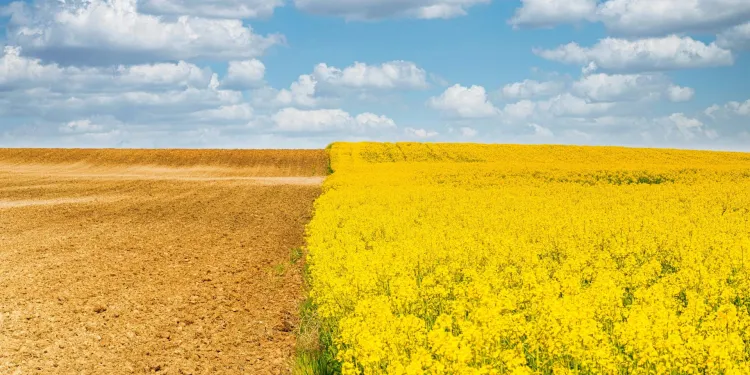South African Canola Farmers Tackle Climate Challenges Amid Harvest Season
As South Africa enters the canola harvest season, farmers are facing a challenging yet opportunistic environment shaped by the effects of climate change. Unpredictable weather patterns—ranging from heavy rainfall to unexpected dry spells—are significantly affecting yields and the future stability of the sector.
Farmers, alongside scientists, are racing to adapt through innovative techniques and climate-resilient crop varieties, striving for sustainability in the face of growing environmental pressures. With harvest efforts underway, experts are evaluating the successes and challenges of this year’s crop while adjusting strategies to safeguard the industry’s long-term resilience.
Pieter de Jager, an experienced grain producer from the Western Cape, shared his observations of this year’s unusual weather patterns:
“We’re in the midst of harvest, having completed about 30% of the canola crop across South Africa. The harvest is not yet finished, so it’s still an ongoing process,” he explained.
The Impact of Unpredictable Weather
The growing season has been marked by a dramatic mix of weather, beginning with an overly wet April, followed by a crucial six-week dry spell. While the seed germination was initially strong, persistent rainfall in June, along with cooler-than-usual temperatures in July and August, extended the blooming period. This, in turn, led to more seed pods and the potential for higher yields.
“Currently, the fields are too wet to access, which is another way the climate is affecting canola production,” de Jager added.
Dr. Johann Strauss, a senior scientist in sustainable cropping systems at the Western Cape Department of Agriculture, offered further insight into regional variations in crop performance.
“While some of the canola in the southern Cape is performing well, the yields in regions like Swartland have been negatively impacted by a late and cold start, coupled with wet conditions that slowed growth and a subsequent dry spell that affected soil and nutrient management,” Strauss noted. Despite these setbacks, he remained optimistic, saying, “It’s still early in the harvest, and canola is continuing to be collected.”
Adapting to a Changing Climate
The South African canola industry is making strides in adapting to these climate challenges, with efforts focused on developing drought- and heat-resistant canola varieties. Gerdus Steyn, senior manager for seed at Sentraal-Suid Co-operative (SSK), emphasized the importance of breeding more resilient crops to stabilize yields amid varying climate conditions.
“Our goal is to produce canola varieties that can withstand drought and extreme temperatures, helping stabilize yields across diverse weather scenarios,” Steyn explained.
The rise in temperatures also brings increased threats from pests and diseases, prompting the industry to prioritize disease-resistant traits in breeding programs. Alongside this, many farmers are adopting sustainable farming practices like no-till farming, cover cropping, and crop rotation to conserve soil moisture, reduce erosion, and improve soil health.
Ongoing Challenges
Despite these advancements, the canola industry in South Africa faces several obstacles. Production remains concentrated in the Southern and Western Cape regions, making it particularly vulnerable to irregular rainfall and drought. Steyn also pointed out that the local industry competes with imported oils, such as soybean and sunflower oils, which are often more affordable. Imported canola from major producers like Canada further strains the local market share.
“The availability of high-quality canola seed varieties continues to be a challenge, and while expanding processing capabilities could strengthen the local industry, the high investment costs pose significant barriers,” Steyn added.
As climate challenges continue to impact the canola industry, farmers and researchers are determined to find solutions that will ensure a more resilient and sustainable future for South Africa’s crucial agricultural sector.


